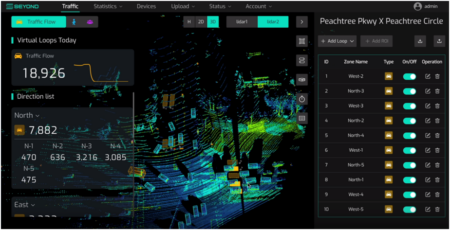Cisco is investing A$1m (US$793,600) in world-first smart city technology for Adelaide to help reduce traffic congestion and create the foundations for the deployment of autonomous vehicles (AVs) on busy roads.
The pilot, in partnership with the Government of South Australia and the City of Adelaide, measures the dwell time and queue length of vehicles as they wait at an intersection; a key element for congestion monitoring.
It also calculates rolling averages across the day via a customized dashboard and a suite of metrics that shows how well the traffic light sequences are operating at that intersection. The pilot – built on Cisco Kinetic for Cities, a first-of-its-kind IoT (Internet of Things) operations platform designed to unlock the power of data from billions of connected devices – will be split into two phases:
• In the first phase, six sensors will be set up at the busy intersection of Grenfell and Pulteney, which will gather intersection-approach traffic information, such as location and speed of vehicles, as well as pedestrians. With this information, tailored algorithms to recommend traffic light intervals can be recommended to improve traffic and pedestrian-crossing flow;
• The second phase involves an assessment of whether the same infrastructure can be applied to quickly and accurately determine the location and movements of self-driving vehicles, which is critical to being able to manage, direct and control automated transport.
Following a successful week-long trial, other intersections in Adelaide will be selected to potentially test and scale the solution city-wide followed by a national roll-out. Other technology companies, including QuantumIT, SQLstream, Quanergy, Astrata, Data#3 and MVIS Australia, have also played an integral part in the pilot.
“Traffic congestion in Australia’s cities is getting worse, and we need to act now before autonomous vehicles join our already busy roads,” explained Kevin Bloch, chief technology officer for Cisco Australia and New Zealand. “We’re very excited to partner with the City of Adelaide and the SA government and analyze the results of this pilot. We believe this technology could have a real impact on drivers, cyclists and pedestrians in Adelaide, and other cities, because its traffic light network will be able to make real-time decisions.”
South Australia’s Science and Information Economy Minister, Kyam Maher, commented, “We are pleased that Cisco has chosen Adelaide to develop and trial its smart city technology. We remain focused on establishing Adelaide as a dynamic and liveable smart city, underpinned by robust innovation initiatives, digital infrastructure and support programs.”




